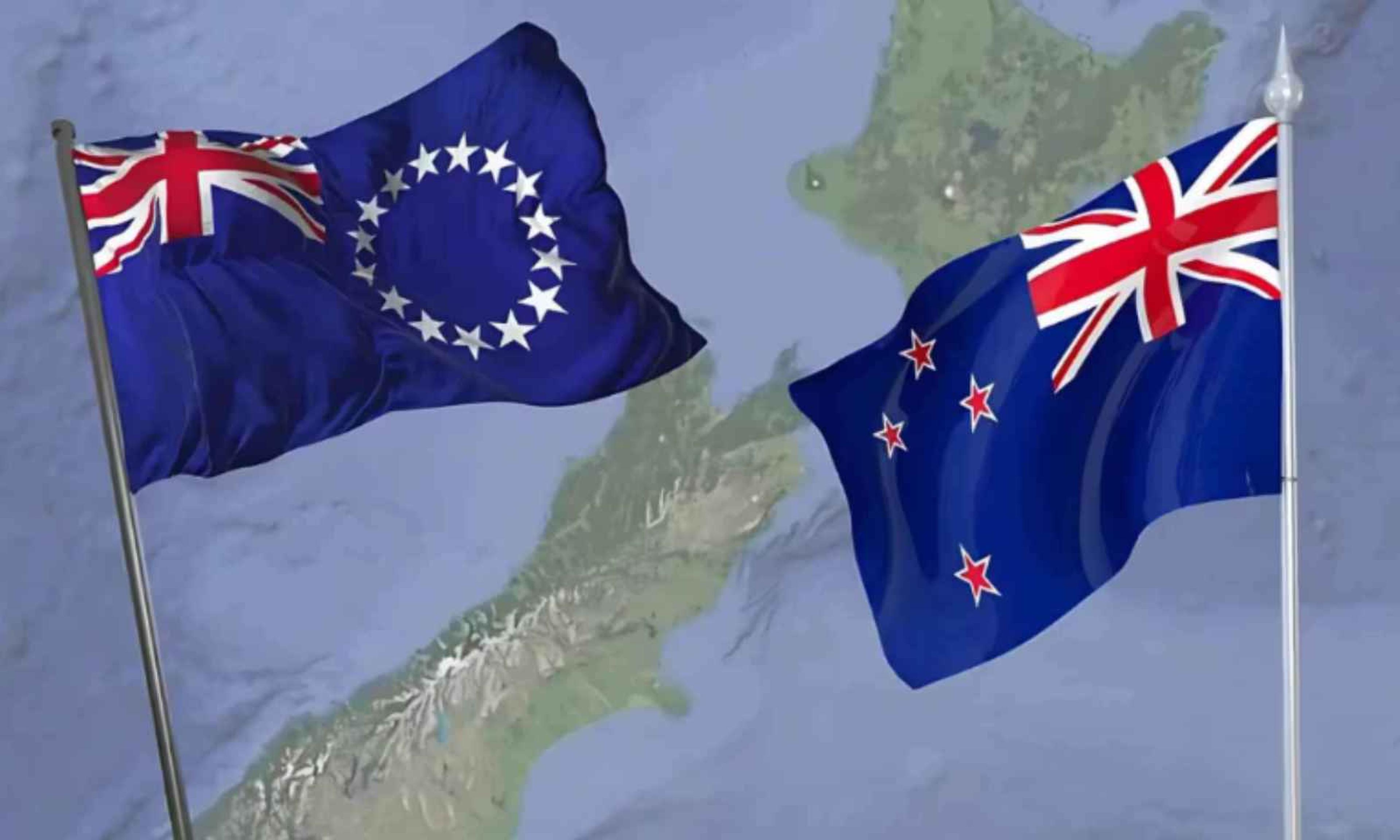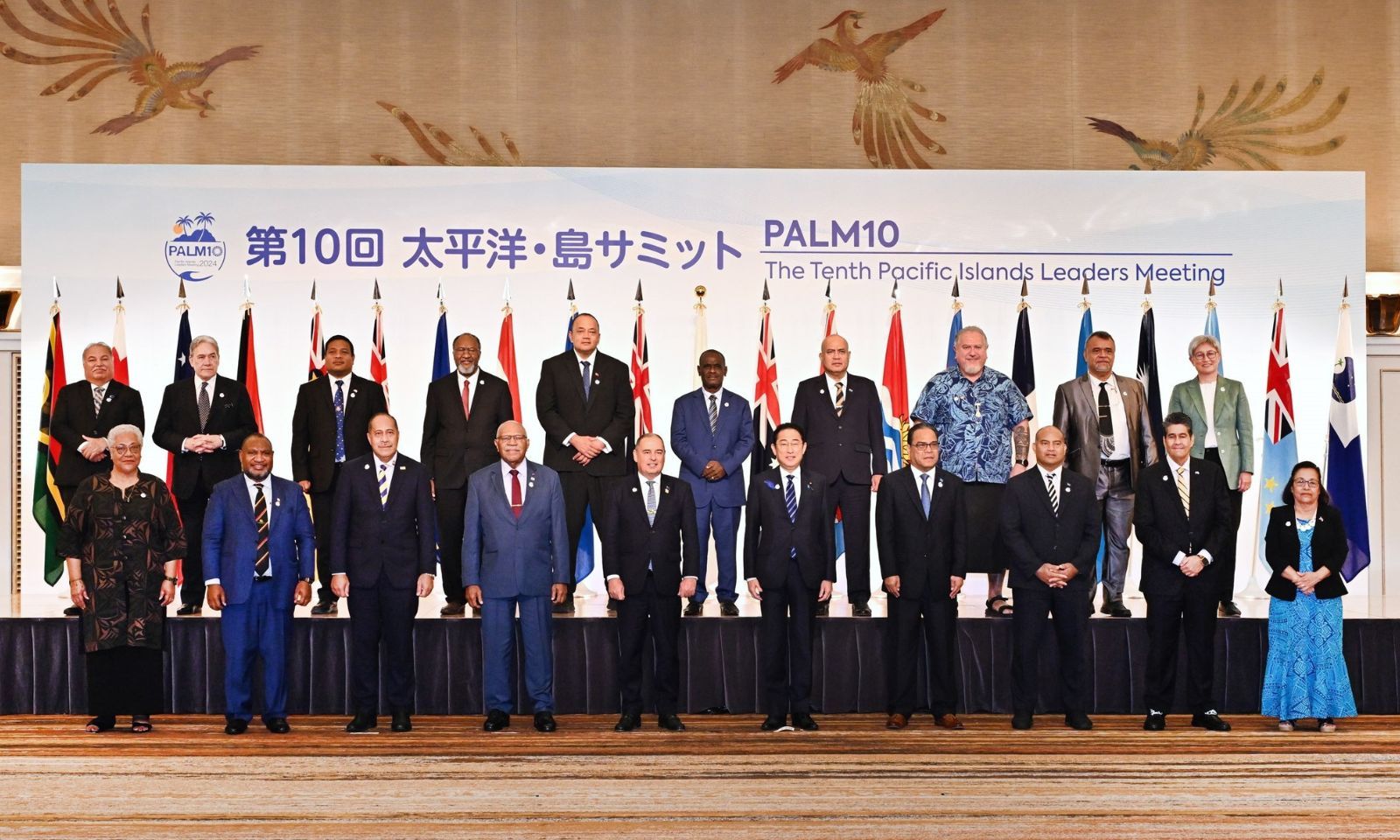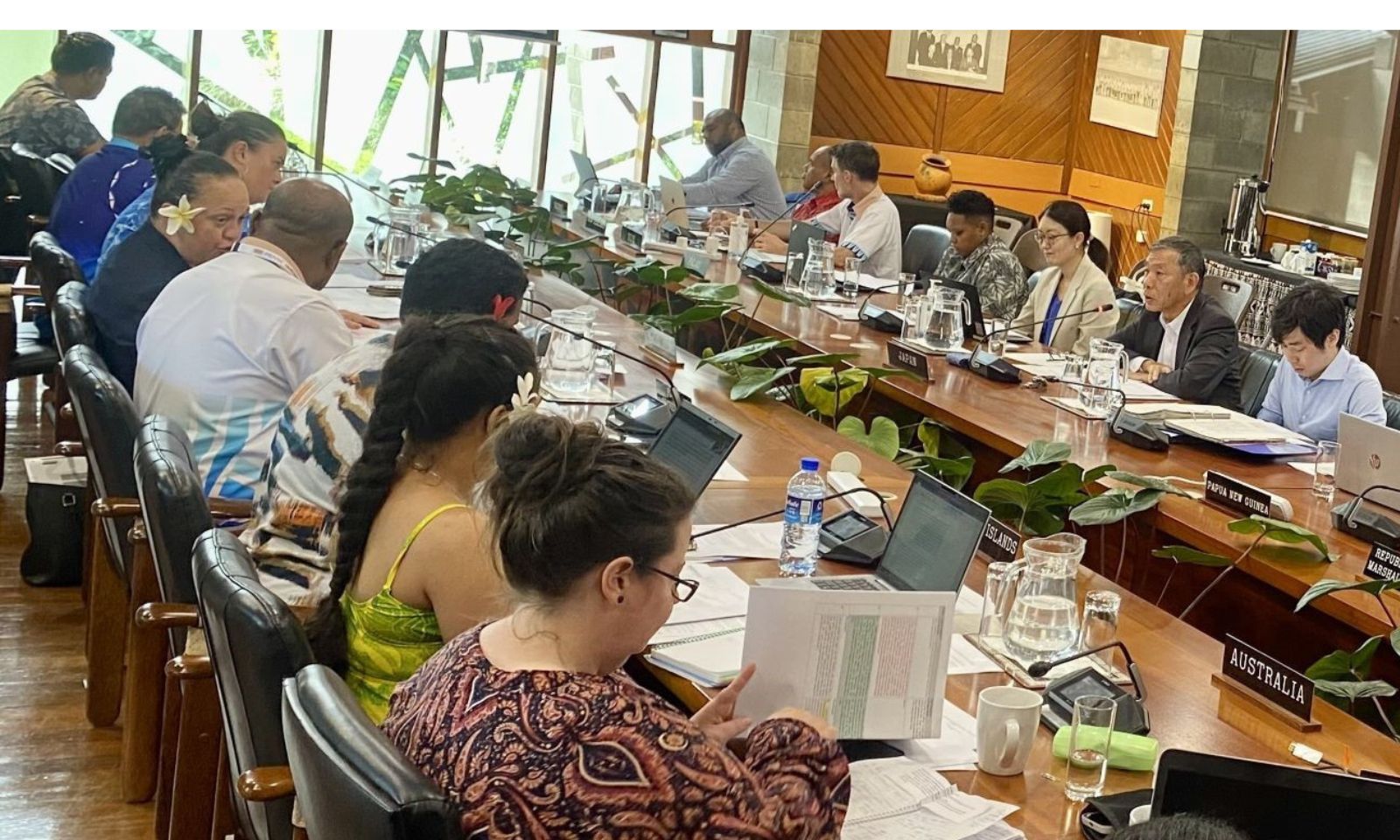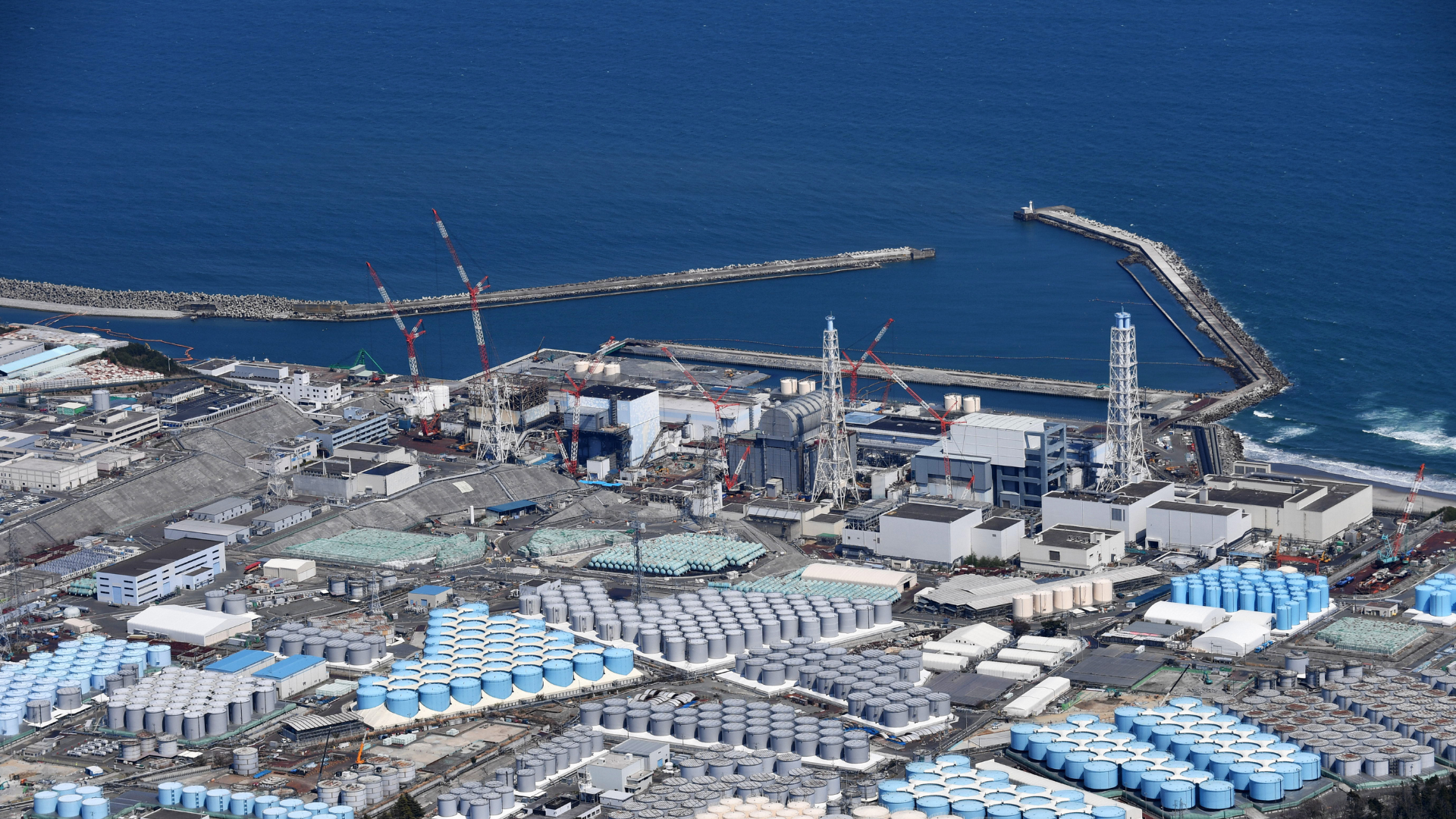

Pacific leaders and Japanese officials during the PALM10 meeting in Tokyo in 2024.
Photo/Facebook/Pacific Islands Forum
Japan boosts Pacific alliances as global confidence in US wanes
Many of Japan's allies are re-evaluating their strategic dependencies amid trade disputes, security anxieties, and past administration fallouts.



Pacific leaders demand fair backing as Moana Pasifika cancels Tonga Super Rugby match

Diamond Langi steps into her boldest era with ‘Yodelay' ft. JKings

Cook Islands projects still delayed as NZ funding suspension continues over tensions


Pacific leaders demand fair backing as Moana Pasifika cancels Tonga Super Rugby match

Diamond Langi steps into her boldest era with ‘Yodelay' ft. JKings
As trust in the United States fades globally, one of its closest allies, Japan, is actively seeking to strengthen its ties with countries in the Pacific and Asia regions.
Concerns over trade disagreements, security pressures, and political tensions from the Trump administration are leading several of Japan's regional partners to reconsider their reliance on the United States and explore relationships with China.
A recent survey found that nearly 70 per cent of Japanese citizens feel that their country’s relationship with the US has deteriorated, with more than 40 per cent wanting Japan to pursue a more independent path from its ally.
Questions in the joint survey by Nippon.com and JX Press focused on Japan-US relations since Trump took office in January 2025. The results were overwhelmingly negative, with only 2.3 per cent of respondents saying the relationship had “improved considerably” or “improved”.
This year marks the 80th anniversary of Japan's surrender in World War II, and many experts believe that the current global situation poses serious challenges. They also say Japan is working to help countries in the Pacific strengthen their abilities to protect their independence and make their own choices for the future.
The goal is for these nations to be self-reliant and not have to rely on or be pressured by larger powers.

Pacific Islands Forum leaders with former Japanese Prime Minister Fumio Kishida at the PALM10 summit. Photo/Facebook/PIF
Ryuji Iwasaki, the Special Deputy Director of the Oceania Division at the Ministry of Foreign Affairs, told journalists on an Association for Promotion of International Cooperation (APIC)Japan Journalism Fellowship in Tokyo this week that the Japanese government plans to continue honouring commitments made at the 10th Pacific Islands Leaders Summit (PALM10) in Fiji in July. The Suva summit was also known as the Kizuna Talanoa.
Iwasaki says the meeting also focused on promoting peace, stability, and shared goals within the region. He adds that during the most recent discussions, participants explored various cooperation projects and addressed major topics outlined in the PIF’s long-term strategy for 2050.
Those topics include leadership, development centred around people, security, economic growth, climate change, environmental issues, and technological advancements. Japan’s long-standing contributions to the region are well-recognised.

PIFS and Japanese officials meet to finalise preparations for the July PALM10 summit. Photo/Facebook/PIF
Cleo Paskal, a senior fellow at a Washington think tank focused on defence, told the Yomiuri Shimbun that Japan’s aid projects tend to be practical and well-received. Paskal says Japan’s approach is seen as less political and more sensitive to the local culture compared to some other countries.
Japan’s historical experiences, especially from past conflicts, have shaped its approach. Japan usually focuses its assistance on areas like climate change, education, and health, avoiding security-related topics.
But in 2021, Japan took a step to address security concerns by starting the Japan Pacific Islands Defence Dialogue (JPIDD) with the island countries, reflecting its growing concerns about China’s influence in the region.
At the Suva summit, the leaders adopted a declaration and action plan, announcing their efforts to support development initiatives and cultural exchanges for over 7500 people in the region.
Pacific leaders were given assurances that the release of treated water from the Fukushima Daiichi Nuclear Power Station, a move opposed by the island nations, is safe. Japan has stated that the operation is being closely monitored and that the government is working closely with the International Atomic Energy Agency (IAEA).

Pacific leaders have been assured that the release of treated water from the Fukushima Daiichi Nuclear Power Station, a move opposed by the island nations, is safe. Photo/Facebook/PIF
The Tokyo Electric Power Company (TEPCO) announced on Tuesday that it had completed the fourth phase of the operation, which started in 2023 and is expected to take almost 30 years to complete. Japan also told Pacific leaders that it would continue to provide transparent information about the safety of the discharge.
PIF Secretary-General Baron Waqa has praised Japan's commitment to working with the Pacific Island countries, with both sides agreeing to further strengthen their cooperation based on trust and the kizuna (bonds) they share.
This week, PIF's Acting Secretary-General, Desna Solofa, met with Rokuichiro Michii, Japan's Ambassador to Fiji, Nauru, and Tuvalu, in Suva. Key discussions focused on strengthening the partnership between the PIF and Japan through the PALM process.
Updates were also shared following the 54th Pacific Islands Forum Leaders Meeting held in Honiara last month, including progress on the implementation of the 2050 Strategy for the Blue Pacific Continent and the ongoing Review of the Regional Architecture.
The 2025 APIC Japan Journalism Fellowship ends on 7 October.
PMN News Senior Reporter Christine Rovoi has been selected to take part in the 2025 APIC Japan Journalism Fellowship. During her time there, she will engage in hands-on experiences to learn about how Japan takes on challenges such as natural disasters, climate change, and sustainable living.